
Ahmed Balboula, PhD
Assistant Professor, Division of Animal Sciences
Microtubules, Centrosome, Meiosis, Oocyte, Fertility
Ahmed Balboula, assistant professor in animal sciences, is working to understand how chromosome segregation is regulated in female gametes (oocytes). During the early stages of pregnancy, chromosome mis-segregation can result in aneuploidy (abnormal number of chromosomes in a cell), the leading genetic cause of miscarriages and congenital abnormalities. His work has implications for both animal and human health. Balboula recently received R35 grant (Outstanding Investigator Award) through the National Institute of General Medicine (NIGMS, NIH) totaling $1.9 million for a five-year period. Funding is for a project titled Mechanisms Underpinning Meiotic Spindle Formation and Behavior. Balboula is a reproductive biologist, interested in cell biology and genetics. He is aiming to understand molecular mechanisms that regulate oocyte meiosis and preimplantation embryo development.

Susanta Behura, PhD
Assistant Professor, Division of Animal Sciences
Fetal brain development, Developmental Origin of Health & Diseases (DOHaD)
Behura performs interdisciplinary research in the areas of reproductive biology. He applies informatics and data science tools in diverse research projects relating to reproduction and development, functional genomics, bioinformatics and computation biology. His lab investigates molecular and cellular regulation of fetal brain development, primarily in mice and pigs. His lab uses multiomics data from transcriptomics, epigenetics, metabolomics, proteomics, and single-cell genomics assays to address questions relating to the regulation of brain-placental axis, effects of sex on brain development and aging, and maternal effects on developmental origin of health and diseases (DOHaD). Placenta plays key roles in fetal brain development, and inadequate placental support can impact developmental process of the brain that increases risk of brain diseases in adult life. Behura lab performs both wet-lab and computational research to study regulation of the placental adaptive functions that safeguard fetal brain development. A long-term goal of the lab is to dissect the mechanisms of how these early-life perturbations impact brain health and disease later in life particularly during aging. Behura is also affiliated with the University of Missouri Institute for Data Science and Informatics, and the Interdisciplinary Neuroscience Program that helps him perform interdisciplinary research in collaboration with other faculty members.

Dan Bergstralh, PhD
Associate Professor, Division of Biological Sciences
Epithelial Tissue Architecture
Epithelia are the most common tissue type in animals. They can be found at organ boundaries, where they perform functions including absorption (the intestine), secretion (glands), filtration (kidneys), and gas exchange (the lungs). Epithelia are typically organized into sheets of cells that are one-cell thick, and our lab aims to understand how these sheets develop and are maintained. Epithelia are the most common source of carcinomas (solid tumors) and a hallmark of these cancers is a loss of the architecture and organization of their epithelial origin.
The Finegan Bergstralh Lab is currently working on two problems. 1) How do epithelial cells figure out the right direction in which to divide? 2) What happens when they don’t? These questions sit at the intersection of basic cell and developmental biology, biomedical research, and the physical sciences, so we take an interdisciplinary approach to answering them; our lab members come from several scientific backgrounds and use a range of techniques that includes traditional genetics, protein biochemistry, advanced light microscopy, and computational modelling.

Ramji Bhandari, PhD
Associate Professor, Division of Biological Sciences
Environmental Impact and Epigenetics
Dr. Bhandari is currently an Associate Professor in the Division of Biological Sciences in the Division of Biological Sciences at the University of Missouri Columbia. Before joining MU, he was an Associate Professor at the University of North Carolina at Greensboro. He is a reproductive biologist by education and environmental health scientist and epigeneticist by training. His research group investigates how gene-environment interactions lead to reproductive and metabolic diseases within the gut-liver-gonad axis. They use chemicals to which humans are exposed as environment, epigenetic mechanisms as drivers, and altered health outcomes, mainly reproductive and metabolic health, as phenotypic traits. They take comparative, molecular, cellular, and bioinformatics approaches and in vitro 3D human cell co-culture and in vivo animal models (fish and rodents) in research. Using advanced research tools, including next-generation whole genome and epigenome sequencing, artificial intelligence, transgenesis, and CRISPR-Cas9/dCas9-mediated genome/epigenome editing, they explore mechanisms underlying environmental exposure-induced altered health outcomes in the gut-liver-gonad axis in the exposed generations and their unexposed offspring in subsequent generations. Their research will lead to the development of diagnostic and predictive biomarkers for environmental health and disease. Dr. Bhandari has been supported by funding from the National Institutes of Health, the U.S. Geological Survey, the University of Missouri, and the University of North Carolina as a principal investigator. He is developing research projects in collaboration at the national and international levels as an MPI and co-PI. He has published three book chapters and 56 peer-reviewed articles. Several manuscripts are currently under peer review. He serves on several local, domestic, and international committees in various capacities, federal grant review panels, and journal editorial boards.

Rene Cortese, PhD
Research Assistant Professor, Department of Child Health, Department of OB/GYN & Women’s Health
Epigenetic Mechanisms Involved in Children’s & Women’s Health
Rene Cortese, PhD, studies epigenetics of complex diseases to detect and understand how complex diseases develop, progress, are inherited, and can be treated. His current research focuses on the functional study of epigenetic phenomena in genome regulation and the epigenetic mechanisms involved in children’s and women’s health. Dr. Cortese’s doctoral research studied epigenetic profiles modulating phenotypes changes in tissue-specific DNA methylation profiles throughout the evolution, during embryonic development and in oncogenic and non-oncogenic diseases. As a post-doctoral fellow, he developed a method for genome-wide epigenetic profiling of tumor circulating DNA in plasma samples from cancer patients. As a Research Associate (Assistant Professor) at the University of Chicago, Dr. Cortese conducted several research projects toward the study of epigenetic phenomena in complex pediatric diseases, with particular emphasis in the cardiovascular and metabolic consequences of sleep disorders. Prior to joining the University of Missouri School of Medicine, Dr. Cortese served as Director of Product Development at MDxHealth, a molecular diagnostics company focused on urology oncology. He also worked as a program manager at Seven Bridges Genomics, leading the company’s efforts to develop and implement an analytical environment tailored to circulating DNA analysis using cloud computing.

Aaron Ericsson, PhD
Assistant Professor, Department of Veterinary Pathobiology
Director of the University of Missouri Metagenomics Center
Microbial Communities, Human Health and Repoduction
Dr. Ericsson received his DVM from the University of Missouri, followed by a residency in laboratory animal medicine and a PhD investigating aberrant host responses to intestinal resident microbes. He is lead scientist on microbiome research at the NIH-funded Mutant Mouse Resource and Research Center (MMRRC) and Rat Resource and Research Center (RRRC). His laboratory focuses on environmental and host-associated polymicrobial communities and the influence of those microbial populations on health and susceptibility to disease, as well as the influence of host-associated microbiota on animal model reproducibility and translatability. Dr. Ericsson also collaborates heavily with veterinary clinicians and investigators in animal science to better understand how low biomass microbial communities in tissues such as the respiratory and reproductive tracts affect host health.
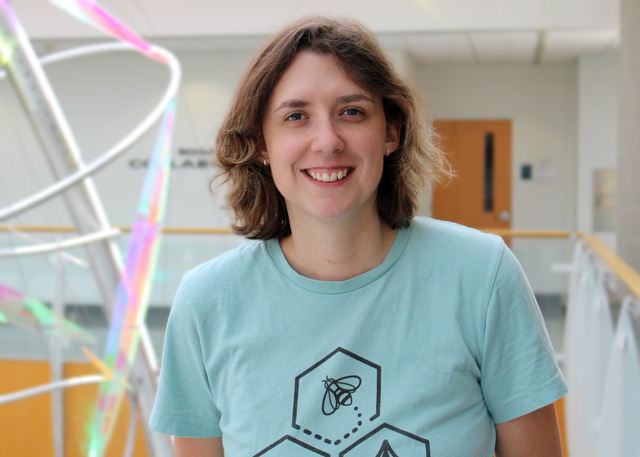
Tara Finegan, PhD
Research Scientist, Department of Biological Sciences
Epithelial Tissue Architecture
Epithelia are the most common tissue type in animals. They can be found at organ boundaries, where they perform functions including absorption (the intestine), secretion (glands), filtration (kidneys), and gas exchange (the lungs). Epithelia are typically organized into sheets of cells that are one-cell thick, and our lab aims to understand how these sheets develop and are maintained. Epithelia are the most common source of carcinomas (solid tumors) and a hallmark of these cancers is a loss of the architecture and organization of their epithelial origin.
The Finegan Bergstralh Lab is currently working on two problems. 1) How do epithelial cells figure out the right direction in which to divide? 2) What happens when they don’t? These questions sit at the intersection of basic cell and developmental biology, biomedical research, and the physical sciences, so we take an interdisciplinary approach to answering them; our lab members come from several scientific backgrounds and use a range of techniques that includes traditional genetics, protein biochemistry, advanced light microscopy, and computational modelling.
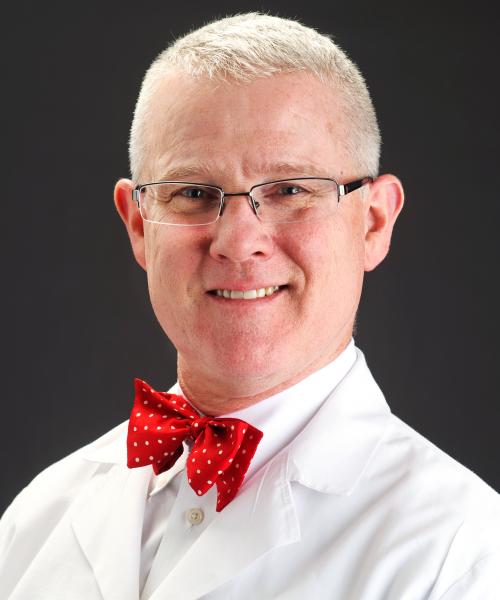
Raymond Foster, MD
Associate Professor, Department of OB/GYN & Women’s Health
Division Director, Urogynecology
Female Pelvic Medicine and Reconstructive Surgery, Obstetrics and Gynecology
Dr. Foster has dedicated his entire career to helping women with urinary incontinence and vaginal prolapse. He joined the medical school faculty in 2007, and as the first trained urogynecologist to work at the University of Missouri, he was charged to build a new program to help women with incontinence, prolapse and other pelvic floor symptoms. Foster now leads the Missouri Center for Female Continence and Advanced Pelvic Surgery, which exceeds 5,000 clinic visits and 450 surgical procedures per year. The standard of care in urogynecology is rapidly changing as new research is published. Fortunately for mid-Missouri women, much of that research is completed by Foster and his team of physicians, advanced practice nurses and basic science researchers — including the new standard for using antibiotics after urinary incontinence surgery. Dr. Foster also seeks to impact care through involvement in positions of national leadership. He currently serves as treasurer of the American Urogynecologic Society, the nation’s flagship organization for doctors committed to helping women with pelvic symptoms adversely impacting quality of life.

Rodney Geisert, PhD
Professor, Division of Animal Sciences
Reproductive Physiology
The long term research goal of my research has focused on elucidating the expression of genes involved with regulation of early conceptus development and uterine function. My research described and identified the cellular and molecular processes involved with rapid trophoblastic elongation of pig conceptuses during early gestation. Research has defined the role of conceptus estrogen secretion in establishment and maintenance of pregnancy in the pig and the cause of embryonic loss following exposure to exogenous estrogens during the first week of pregnancy. My laboratory’s research has established that specific cellular changes in progesterone and estrogen receptors are involved with critical events in uterine secretion and embryonic development and placental attachment in the pig. We demonstrated that PR in the uterine epithelium disappeared after Day 10 of the estrous cycle and pregnancy. With the loss of epithelial PR, an increase in ER occurs which can be activated through conceptus release of estrogen during the period of rapid trophoblastic elongation. Conceptus elongation and estrogen release are both essential for maintenance of pregnancy in the pig. Although conceptus estrogen synthesis and release has clearly implicated in maternal recognition of pregnancy in the pig by others, we were the first to indicate the need for two phases of conceptus estrogen secretion to establishment of pregnancy to term in sows.

Jonathan Green, PhD
Associate Professor, Department of Animal Sciences
Reproductive Physiology and Molecular Biology
The emphasis of the Green lab is to characterize some of the interactions that take place between the ungulate conceptus/placenta and the maternal system. Some of these studies have been directed toward examining global changes in mRNA expression patterns throughout development by using high-throughput sequencing methods. Other projects are more focused; they involve characterization of certain peptidase and peptidase inhibitor gene families produced by the placenta and the uterine endometrium in livestock. A peptidase gene family of particular interest is the pregnancy associated glycoprotein (PAG) family. The PAGs are a particularly large grouping of genes (dozens have been described within ruminant species). They were initially identified as antigens circulating in the sera of pregnant cows. They are also known to accumulate at the placenta-uterine interface. The PAGs are related to aspartic peptidases although some contain mutations at their catalytic centers that render them unable to function as peptidases. Much of the laboratory’s work on these proteins involves optimizing assays for their detection in the blood and milk of pregnant cattle. Other studies are focused on understanding the functional role that these proteins are playing during the establishment and maintenance of pregnancy in domestic ungulates.
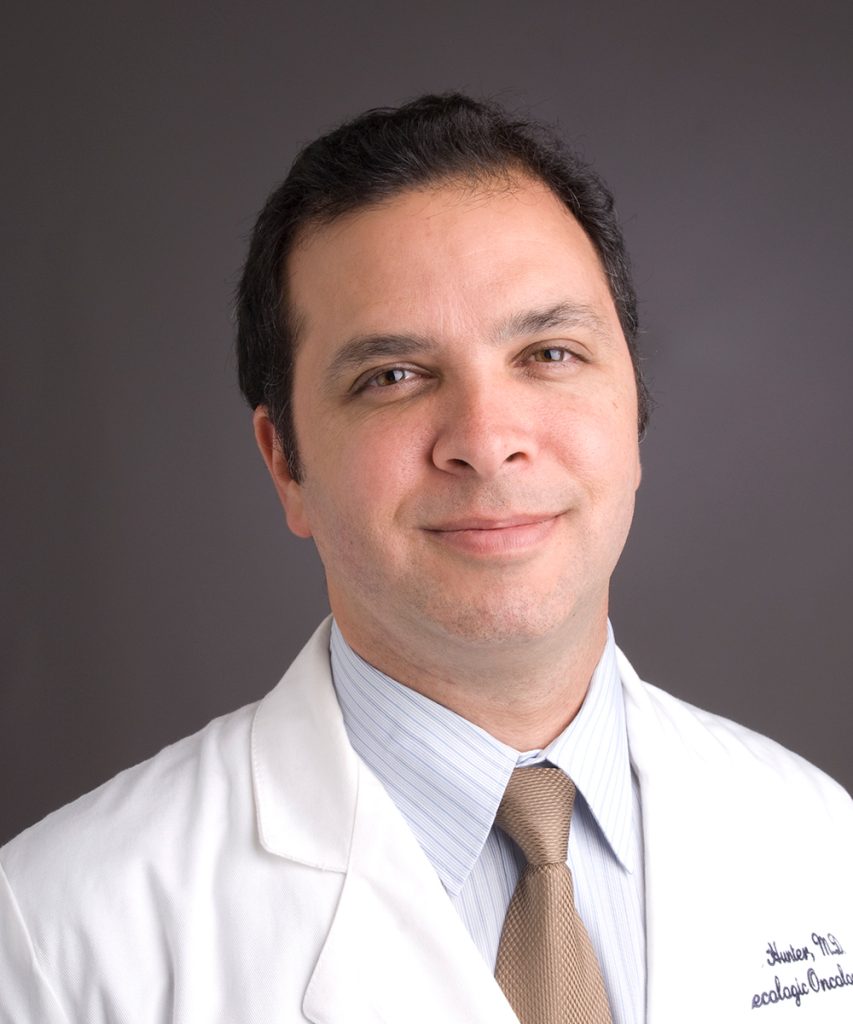
Mark Hunter, MD
Associate Professor, Department of OB/GYN & Women’s Health
Director, Division of Gynecologic Oncology
Gynecologic Oncology, Obstetrics and Gynecology
Dr. Hunter specializes in gynecologic oncology. With nearly twenty years in practice, he has expertise in the diagnosis and treatment of ovarian, uterine, cervical, vaginal and vulvar cancers. In addition to his clinical practice, Hunter also works to advance medical technology. Many women who develop uterine cancer require a hysterectomy, a removal of the uterus. Traditionally, the surgery leaves a large scar and results in several weeks’ recovery time. Dr. Hunter has developed a prototype surgical device that would allow hysterectomies to be performed less invasively. Dr. Hunter has also been an early adopter of new medical innovations. For many of his cancer patients, he operates using the da Vinci Surgical System. This advanced device decreases incision size and reduces complications — in many cases, enabling the patient to go home the same day.

Jae-Wook Jeong, PhD
Dr. R. Philip and Diane Acuff Endowed Professor, Department of OB/GYN & Women’s Health
Director, NextGen Precision Health Center for Reproductive Sciences
Female Infertility, Pathophysiology and Theranostics in Endometriosis, Distant Metastasis and Recurrence of Endometrial Cancer
Dr. Jeong’s is devoted to understanding the molecular mechanisms regulating normal physiology and disease development in the uterus. The investigation of the regulation of reproductive biology is critical in understanding causes, treatments, and preventions for reproductive disorders. His research is focused on major regulators of the ovarian steroids progesterone and estrogen. Dr. Jeong’s laboratory has developed and applied several genetically engineered mouse models as well as translational studies to understand the factors that regulate uterine epithelial-stroma crosstalk in controlling uterine epithelial cell proliferation and receptivity for embryo attachment. Current studies are aimed at the application of these genetic model systems to further study and understand the role of steroid hormones in women’s health, with the ultimate goal of developing therapies effective against reproductive disorders.

Shiying Jin, PhD
Associate Research Professor, Department of OB/GYN & Women’s Health
Uterine Stem Cells, Uterine Regeneration, Endometrial Cancer, Cancer Stem Cells
Dr. Jin’s research has been focused on stem cell, tissue regeneration, hyperplasia and cancer in the uterus to provide fundamental information for prevention and treatment of diseases to improve women’s reproductive and general health.
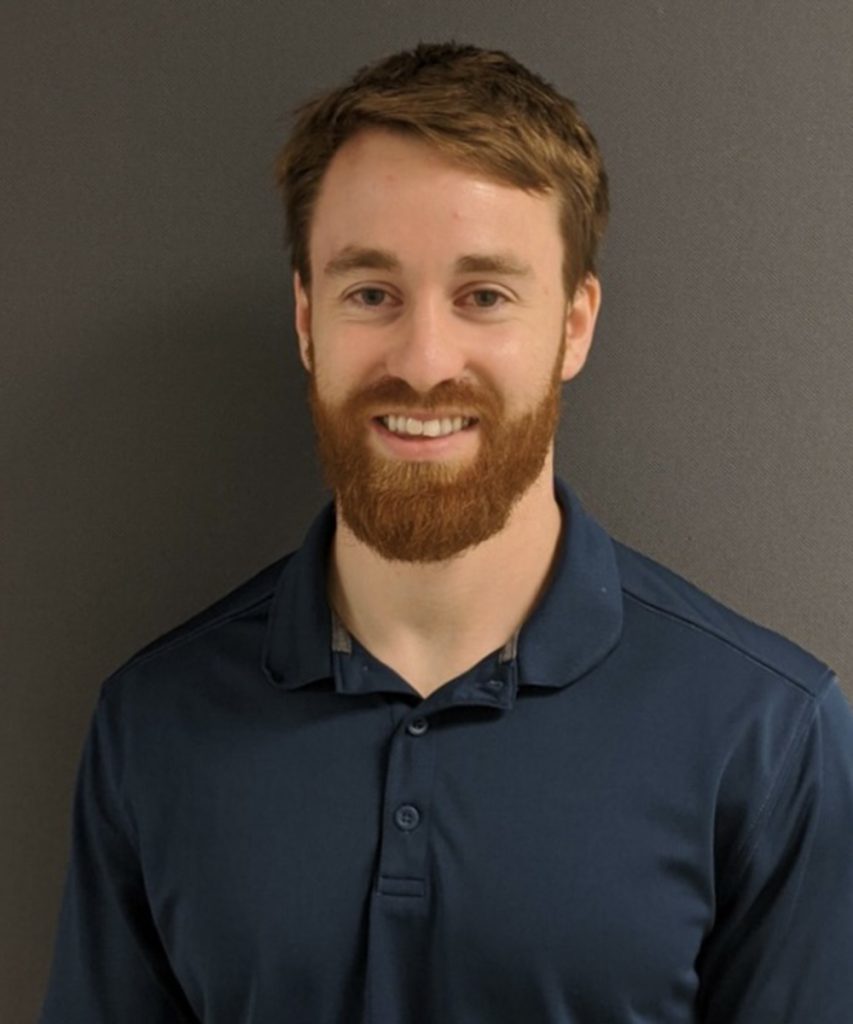
Andrew Kelleher, PhD
Assistant Professor, Department of OB/GYN & Women’s Health
Reproductive and Developmental Biology, Mechanisms Governing Endometrial Diseases
Dr. Kelleher’s long-term research goal is to define the critical physiological and genetic pathways that regulate uterine development, function, and regeneration to diagnose, treat, and prevent infertility and disease in women. To this end, his research utilizes mouse genetic models, endometrial organoid culture (human and mouse), and next-generation sequencing methods to comprehensively determine physiological and molecular aspects of uterine function and disease.
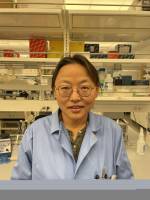
Hong Im Kim, PhD
Research Assistant Professor, Division of Animal Sciences
Uterine Biology, Uterine Cancer
Kim is an assistant research professor in the Division of Animal Sciences, and part of the new faculty group in the NextGen Precision Health Institute, where world-class researchers are seeking answers for the toughest diseases. Prior to joining CAFNR, she served as a senior researcher in the Department of Obstetrics, Gynecology and Reproductive Biology at Michigan State University, where focused on identification and analysis of genes associated with survival rate in endometrial cancer and ovarian clear cell cancers. She received her PhD in Medical Science from Chung-Ang University in South Korea and completed post-doctoral training at Louisiana State University Health Science Center and the MD Anderson Cancer Center. She studies molecular and genetic characters that cause ovarian and endometrial cancers. Her work will intersect both human and animal health through pharmacological targeting which could lead to enhanced prevention, detection, and treatment.

Tae Hoon Kim, PhD
Assistant Professor, Department of OB/GYN & Women’s Health
Infertility, Endometriosis, Endometrial Cancer
The focus of Dr.Kim’s research is investigating the molecular mechanisms regulating normal uterine biology as well as molecular causes of women disease including endometriosis and endometrial cancer by using preclinical animal model.

Kiho Lee, PhD
Associate Professor, Division of Animal Sciences
Humanized Pig Models for Translational Research
Dr. Lee returns to CAFNR as an associate professor in Animal Sciences, the same division in which he completed his post-doctoral fellowship from 2011 to 2013. Before re-joining CAFNR for the fall 2020 semester, Lee worked in the Department of Animal and Poultry Sciences at Virginia Tech as associate professor. His research interest involves designing humanized pig models for translational research and his work will be a part of the UM System’s NextGen Precision Health Initiative. He received his Ph.D. from Purdue University, focused on reproductive physiology.
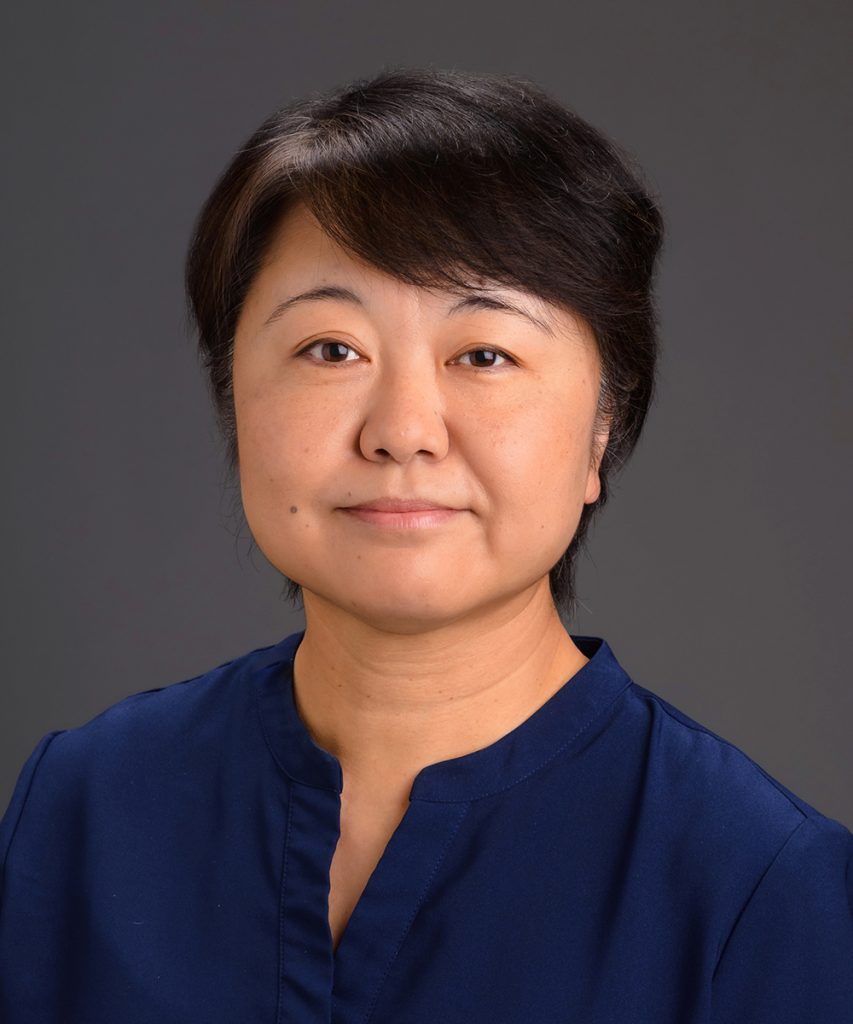
Lei Lei, PhD
Associate Professor, Department of OB/GYN & Women’s Health
Oogenesis, Ovarian Reserve Formation and Maintenance, Developmental Origins of Ovarian Dysfunction, Female Fertility Preservation, Cellular Origins of Ovarian Cancer
Dr. Lei’s research focuses on mammalian ovarian reserve formation, maintenance, and its associated female reproductive health issues. The Lei lab is particularly interested in understanding 1) how the intercellular transport of organelles and cytoplasm during ovarian reserve formation in fetal ovaries influences ovarian function and female fertility in adulthood; 2) the roles of organelle organization and RNA storage in ovarian reserve maintenance and activation in adult females; and 3) cellular origins of ovarian cancer. Dr. Lei’s research has been reported in Science, Proceedings of the National Academy of Sciences of the USA (PNAS), Development and Biology Open, etc. Dr. Lei has been peer-reviewing research articles for Science, PNAS, Nature Medicine, etc. and research grants for the National Institutes of Health.

Rong Li, PhD
Assistant Research Professor, Department of OB/GYN & Women’s Health
Uterine Biology, Transcriptional Factor Regulation, Uterine Receptivity During Endometriosis
Dr. Rong Li, PhD’s research focuses on uterine biology during physiological and pathological conditions. During natural pregnancy, Dr. Li identified the critical roles of TRIM28, acting as a PGR co-regulator, to modulate the uterine biology both in cultured human endometrial stromal cells and in mouse models. Meanwhile, Dr. Li discovered epithelial PGR can regulate the uterine receptivity through LIF expression at glandular epithelium and FOXO1 nuclear localization at luminal epithelium. At this time, she is researching endometriosis associated uterine receptivity defects using the mouse endometriosis model established by Dr. Jae Wook Jeong. Dr. Li plans to conduct the novel technology scRNA-seq and spatial transcriptome to identify the spatial and cellular changes in the ectopic and eutopic uterus during endometriosis. These results may answer the important questions in the field such as “how ectopic endometrial lesions affect the eutopic uterus” and “ how the changes in the eutopic uterus lead to infertility”.

Matthew Lucy, PhD
Professor, Division of Animal Science
Molecular Endocrinology
Dr. Matt Lucy is known for his work on the reproductive physiology of high-producing dairy cows. The research program examines the physiological processes regulating fertility in dairy cows and explores practical methods to restore fertility in infertile animals. An important focus is early embryonic loss; one of the most-pressing reproductive problems facing the dairy industry today. Uterine disease early postpartum is an important factor associated with early embryonic loss. His current research, therefore, examines mechanisms through which early postpartum disease can imprint uterine tissue and reduce uterine receptivity long-term. Studies in the laboratory range from basic (cell culture, bulk RNA-seq, single cell sequencing, spatial transcriptomics, etc.) to applied (whole animal field trials).

Thiago Martins, DVM, PhD
Assistant Professor in Beef Reproduction, Extension & Research, Division of Animal Science
Cellular and Molecular Processes Controlling Reproduction
The emphasis of my research program is to understand and manipulate the endocrine, cellular and molecular processes controlling the reproductive tract function of cattle to optimize the chances of conception after a given service. My ultimate goal is to produce more kilograms of calves per unit of cow that enters the beef production system.
Our laboratory conducts studies on the topics of hormonal control of the estrous cycle and early embryonic losses in beef cattle. Specifically, we investigate progesterone-based strategies to improve efficiency of estrous synchronization programs for beef cows, embryo-maternal communication, and new fertility-promoting molecules. The research studies involve use of steroid assays, ultrasound, molecular techniques, and omics approaches. Our laboratory is also committed to promoting the use of reproductive biotechnologies in cow-calf operations.

Thomas B. McFadden, PhD
Professor, Department of Animal Sciences
Genetics, Environmental Factors, and Reproduction
Dr. McFadden’s research program is focused on understanding the interactions between genotype and environment in order to optimize phenotypic expression of animal production traits – primarily relating to lactation and immune function. His research utilizes experimental physiology with functional genomics and proteomics approaches to identify biological mechanisms and understand effects of environmental factors such as heat stress, photoperiod or milking frequency on milk yield and composition of dairy cows. Recent interests include the effects of bioactive factors in colostrum and milk on neonatal gastrointestinal tract development, immune development and function, and health. Over his career, he has taught, or contributed to teaching of, over 20 different courses at several universities, in addition to mentoring graduate and undergraduate student researchers. He has broad international experience and has served administrative roles in several universities. He has participated in and supported extension and outreach programs in each of his professional positions and has had a longstanding interest in leadership development and in providing leadership to external stakeholder groups.

Amanda Patterson, PhD
Assistant Professor, Department of OB/GYN & Women’s Health and Division of Animal Sciences
Mechanisms of Uterine Repair, Uterine Stem Cells, Uterine Fibroids, Cancer Stem Cells
Research in the Patterson lab is focused on understanding mechanisms of uterine repair in health and disease. During pregnancy, the uterus is drastically remodeled to accommodate an embryo/fetus, and following parturition, the tissue must be repaired to allow for subsequent pregnancies. The repair process includes regeneration of the endometrium and likely involves multiple mechanisms including stem cells. We are interested in understanding how stem cells function in the repair process, what regulates their activity and what happens when they are mutated or not properly regulated. When stem cells and other mechanisms of uterine repair go awry, they may contribute to diseases such as endometriosis and endometrial cancer, and we want to understand how this happens so better diagnostics and therapeutics can be developed.

Randall Prather, PhD
Curators’ Distinguished Professor, Division of Animal Sciences
Director of the National Swine Resource and Research Center
Reproductive Physiology & Molecular Biology, Transgenic Pigs
Our laboratory’s research is focused on early embryo development in the pig. There is a 30% loss of potential conceptuses during the first month of development. We hope that by describing the cellular and molecular program of events that occur during development of the preimplantation pig embryo, the root causes of these losses can be identified and steps can be taken to reduce them. To that end we began by transcript profiling of reproductive tissues in pigs and cattle. Since then we have adopted deep sequencing technologies to identify both transcripts and methylated regions of the genome that are unique to different stages of embryogenesis. Along the way we used that information to improve systems of in vitro embryo production and further develop technology to mature oocytes, to activate oocytes, to in vitro fertilize oocytes, to culture oocytes and embryos, and to perform embryo transfer.

Md Saidur Rahman, DVM, PhD
Assistant Research Professor, OB/GYN & Women’s Health
Pathophysiology of uterine diseases
Md Saidur Rahman received his D.V.M. and master’s degrees from Bangladesh Agricultural University and Ph.D. from Chung-Ang University in Korea. While a research professor and postdoctoral researcher at Chung-Ang University he investigated how environmental factors interact with the genome and proteome to shape phenotypic variations and diseases. He was particularly interested in studying Endocrine Disruptors’ (EDCs)’ impact of EDCs on reproduction and how reducing their exposures may limit negative health outcomes. He joined Mizzou’s Department of Obstetrics, Gynecology and Women’s Health as a faculty member in January 2023. His current research at Mizzou is devoted to studying the molecular mechanisms that regulate the pathophysiology of uterine diseases. His focus is on uterine biology, the development of therapeutic strategies for endometriosis, and the clinical management of endometrial cancer recurrence. He seeks to apply new techniques to reproductive research, including high-resolution imaging systems and engineered animal models that are phenotypically relevant to humans and non-human primates.

Rocío Melissa Rivera, PhD
Professor, Division of Animal Sciences
Impacts of Embryo & Gamete Manipulation on Epigenetics
Infertility, pregnancy loss, and intrauterine growth retardation represent major problems in the reproductive performance of domestic animals and the reproductive health of women. The long-term goal of our research program is to understand the key hormonal, cellular, and molecular mechanisms regulating development and function of the uterus and placenta and to translate these findings to the betterment of both animal and human health. Current research areas include: the biological role of endometrial glands in uterine function using sheep and mouse models; the biological roles of exosomes in conceptus elongation and uterine interactions during early pregnancy in sheep; the genetic regulation of postnatal uterine development and function using mouse models; the physiological roles of Hydroxysteroid (11-Beta) Dehydrogenases and Cortisol during early pregnancy in sheep; improving the fertility of dairy cattle using translational genomics; reducing embryo mortality through improved understanding of embryo maternal communication in beef cattle; and, a systems biology approach to understand endometrial receptivity and pregnancy loss in beef cattle
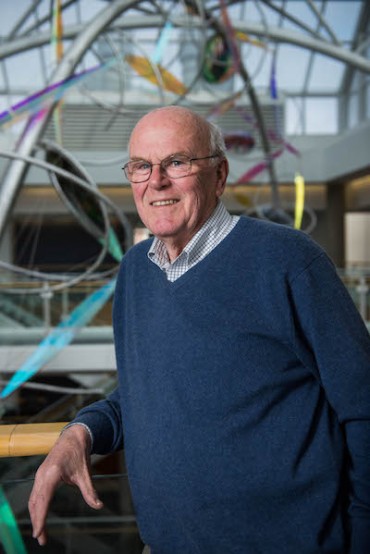
R. Michael Roberts, PhD
Curators’ Distinguished Professor, Division of Animal Sciences
Reproductive and Developmental Biology
R Michael Roberts is a Curators’ Distinguished Professor at the University of Missouri, with appointments in Animal Sciences, Biochemistry and Veterinary Pathobiology. He is currently an investigator in the University of Missouri, Christopher S Bond Life Sciences Center. He gained his B.A. and D.Phil. in Plant Sciences from Oxford University, England, but since the mid 1970s has worked primarily as a reproductive biologist. Roberts’ is best known for his work on uterine secretions, and particularly the iron-binding acid phosphatase, uteroferrin, in the pig, and on how the early embryo signals its presence to the mother in ruminant species through the production of small proteins called interferons. More recently, Roberts has been studying the specification of trophoblast as it emerges from pluripotent precursor cells and the role of maternal diet in regulating the sex of her offspring. His work is supported primarily through Federal Agencies such as the National Institutes of Health (NIH) and the United States Department of Agriculture (USDA). Currently, Dr. Roberts’ attention is on finding the causes of pre-eclampsia and the effects of the Zika virus on human pregnancy.

Cheryl Rosenfeld, DVM, PhD
Professor, Division of Biomedical Sciences
Environmental Impact and Development
Dr. Rosenfeld specializes in studying the effects of maternal diet on offspring, exploring how the in-utero environment can shape risks for later disease. Her research with mice has yielded major breakthroughs. She has determined that an energy-rich maternal diet will result in more male mouse pups, while a restricted-calorie diet produces daughters more frequently. She also established a relationship between a certain hair-coat color and obesity and diabetes in mice. Most recently, the Rosenfeld lab has identified spatial learning disabilities in male deer mice whose mothers consumed a diet supplemented with bisphenol A, (BPA), a known endocrine disruptor and a common pollutant. This disability is expected to hinder the males in navigating to find mates; the finding has implications for deer mice populations exposed to BPA in the wild.

Laura Schulz, PhD
Associate Professor, Department of OB/GYN & Women’s Health
Director, Institute for Women’s Health Research
Director, Research Success Core, School of Medicine
Maternal Impact and Placental Development
Laura Schulz’s laboratory focuses on understanding how the maternal hormonal and nutritional environment during pregnancy affects the function of the placenta, and, in turn, the development and future health of the fetus. Major projects include using mouse models to determine how maternal nutrition, particularly maternal diabetes and the hormone leptin, influences placental development and offspring metabolic health. Her lab also collaborates with the Roberts, Ezashi, and Schust labs to better understand human placental development using pluripotent stem cell models. In addition, Dr. Schulz’s lab continues to work with the Phillips lab in biochemistry to elucidate the impact of the maternal environment on offspring bone health.

Thomas Spencer, PhD
IRHG Director
Curators’ Distinguished Professor, Division of Animal Sciences and Department of OB/GYN & Women’s Health
Vice Chancellor for Research & Economic Development
Reproductive and Developmental Biology
Infertility, pregnancy loss, and intrauterine growth retardation represent major problems in the reproductive performance of domestic animals and the reproductive health of women. The long-term goal of our research program is to understand the key hormonal, cellular, and molecular mechanisms regulating development and function of the uterus and placenta and to translate these findings to the betterment of both animal and human health. Current research areas include: the biological role of endometrial glands in uterine function using sheep and mouse models; the biological roles of exosomes in conceptus elongation and uterine interactions during early pregnancy in sheep; the genetic regulation of postnatal uterine development and function using mouse models; the physiological roles of Hydroxysteroid (11-Beta) Dehydrogenases and Cortisol during early pregnancy in sheep; improving the fertility of dairy cattle using translational genomics; reducing embryo mortality through improved understanding of embryo maternal communication in beef cattle; and, a systems biology approach to understand endometrial receptivity and pregnancy loss in beef cattle.
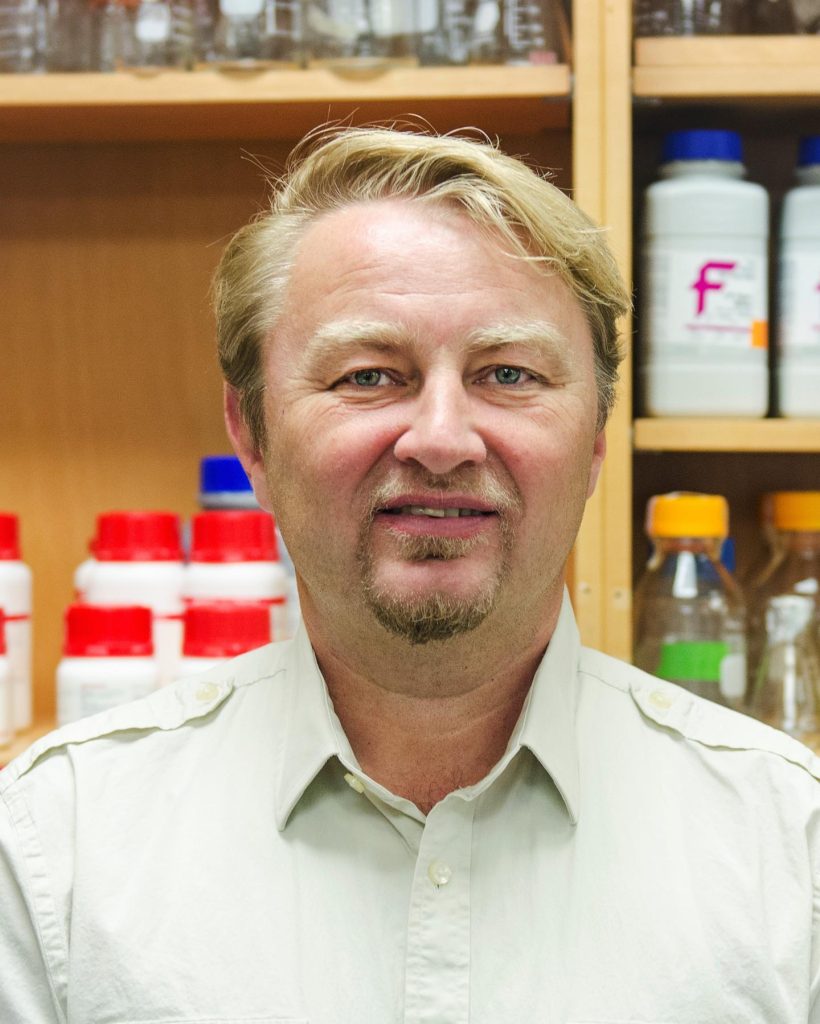
Peter Sutovsky, PhD
Professor, Division of Animal Sciences
Semen Analysis, Sperm Function, Fertilization
Since the early 90’s, Peter has studied mammalian gametogenesis, fertilization, and pre-implantation embryonic development with special emphasis on the gamete and zygotic ubiquitin-proteasome system (UPS). He was the first to describe the role of UPS in the regulation of mitochondrial inheritance and introduced a novel concept of extracellular UPS, which has been validated in reproduction and outside the reproductive biology field. In particular, Peter demonstrated the importance of sperm borne proteasomes for mammalian fertilization and the role of UPS in epididymal sperm quality control, a mechanism relevant to male fertility evaluation in livestock, and the diagnosis and treatment of human male fertility. Peter’s collaborative research on the biogenesis and post-fertilization processing of sperm head perinuclear theca influenced the optimization and safeguarding of assisted reproductive technologies/therapies such as in vitro fertilization (IVF) and intracytoplasmic sperm injection (ICSI). Other notable collaborations include the development of transgenic pig model for the study of 26S proteasome and work on rodent model of human endometriosis. Recently, the Sutovsky laboratory has also been focusing on biomarker-based flow cytometric semen analysis and semen nanopurification aimed at improving conception rates in livestock artificial insemination (AI).

Bhanu Telugu, PhD
Associate Professor, Division of Animal Sciences
Genetic engineering/Biotechnology and Reproductive Biology
Dr. Telugu is a trained veterinarian having obtained his degree from S.V. Veterinary University, India (B.V.Sc., & A.H., 2001). He later joined University of Missouri, where he obtained his Ph.D. in Reproductive Biology (2008). Following a brief stint as a postdoctoral fellow in stem cell biology also at University of Missouri (2008-2012), he joined the University of Maryland, where he is an Associate Professor. His laboratory employs genome editing tools such as CRISPRs for site specifically altering the genome in livestock for agricultural and biomedical applications. Specifically, genome editing tools are employed to alter alleles to facilitate “rational selection” of agricultural traits. The laboratory is also actively engaged in developing porcine models of human disease (diabetes, cardiovascular disease and obesity), and developing technologies for transplantation research where the pig is a preferred animal model.
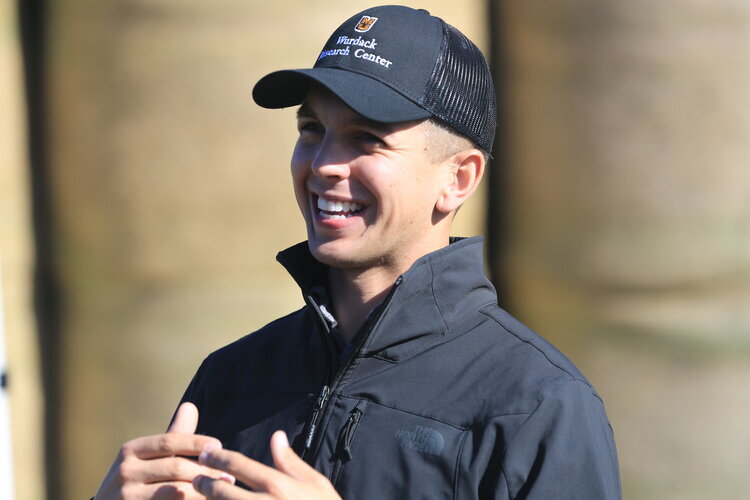
Jordan Thomas, PhD
Assistant Professor/State Cow-Calf Extension Specialist, Division of Animal Sciences
Reproductive management of beef cattle
Jordan Thomas is an Assistant Professor in the Division of Animal Sciences at the University of Missouri. Dr. Thomas is a Missouri native and University of Missouri alumnus, having earned his Ph.D. in Animal Sciences with an emphasis in Reproductive Physiology in 2017. Dr. Thomas maintains an active applied research program in reproductive management of beef cattle, coordinates the breeding program for cattle across the University of Missouri Agricultural Experiment Station Research Center herds, and serves as program advisor to the Show-Me-Select Replacement Heifer Program. The primary research focus of the Thomas lab is control of the bovine estrous cycle, specifically to facilitate use of reproductive technologies such as timed artificial insemination and embryo transfer.

Victoria Vieira-Potter, PhD
Associate Professor, Department of Nutrition & Exercise Physiology
Behavioral & Biological Factors Influence Metabolic Function
Dr. Vieira-Potter, obtained her Bachelor’s degree in Biology and Chemistry from Wheaton College (Norton, MA) in 2001. She completed her Master’s degree in Nutrition at the University of New Hampshire in 2004. Her Master’s thesis was “Insulin Resistance: A Possible Risk Factor for Atopy and Asthma Development in Women.” She has a doctorate degree in Nutrition from the University of Illinois Urbana-Champaign where she studied the anti-inflammatory effect of exercise using both human and animal models. Her dissertation title was “Anti-inflammatory Effects of Cardiovascular Exercise: Role of Visceral Adipose Tissue.” From 2009-2012 she worked as a postdoctoral fellow at the JM-USDA Human Nutrition Research Center on Aging at Tufts University in the Obesity and Metabolism Laboratory where she studied the metabolic effects of estrogen loss in rodents with a primary focus on the adipose tissue. Since August 2012, Dr. Vieira-Potter joined the faculty of the Department of Nutrition and Exercise Physiology at the University of Missouri as an Assistant Professor of Nutrition. She is currently the PI of the PhIT-FAT (Physiological and Immunological Techniques assessing the Function of Adipose Tissue) laboratory and recently merged with Dr. Jaume Padilla, an expert in Cardiovascular Physiology; together they lead the Cardio-Metabolic Unit. Dr. Vieira-Potter teaches an upper level undergraduate/graduate course in Nutrition, Human Nutrition II.

Wipawee “Joy” Winuthayanon, BNS, PhD
IRHG Coordinator
Associate Professor, Department of OB/GYN & Women’s Health
Steroid Actions, Fallopian Tubes, Oviduct, Semen Liquefaction, Non-Hormonal Contraceptives
Dr. Winuthayanon’s, research involves the multiple types of cells in the female reproductive tract that work in concert to provide an optimal microenvironment for gametes (eggs and sperm) and embryos to establish a successful pregnancy. At Winuthayanon Lab, they focus on studying how ovarian steroid hormones (estrogen and progesterone) affect fertility during sperm migration, fertilization, embryo development, and embryo transport within the female reproductive tract. Dr. Winuthayanon’s research uses genetic-engineered mouse models to dissect the molecular mechanisms and functional requirement of estrogen and progesterone signals through their classical nuclear receptors (estrogen receptor; ESR1 and progesterone receptor; PGR) during early pregnancy. Her research aims to provide fundamental knowledge in reproductive biology during early pregnancy as well as potential contraceptive targets for women and therapeutic approaches for infertility in humans.